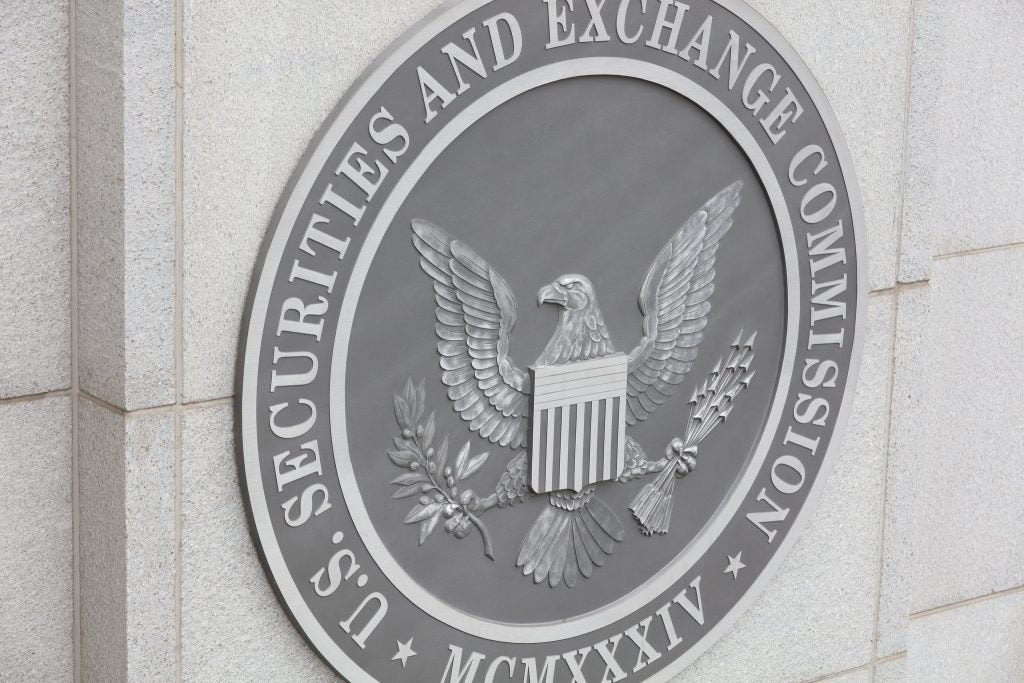Widespread support for the SEC’s proposed climate risk disclosure standards

(This post was co-authored by EDF’s Director of Investor Influence Andrew Howell)
A proposal from the Securities and Exchange Commission (SEC) that would standardize public companies’ disclosures of climate risk information is getting strong support from the general public, investors, companies of various sizes across a wide range of sectors, law and business scholars, public officials, climate scientists, and environmental advocates – including EDF.
We joined the Institute for Policy Integrity at NYU School of Law to submit letters supporting the proposed standards. Our letters focus on three reasons why the SEC is on strong legal footing:
- There are numerous regulatory precedents for the SEC’s approach
- The SEC’s economic analysis is sound
- The SEC has provided a reasoned explanation for its chosen approach
Adoption of the proposed rule would replace today’s inconsistent, vague reporting of climate risk exposure with comparable, specific information to strengthen investor and corporate climate risk management.
Here’s what other experts and stakeholders are saying about why they support the standards:
Investors say the standards would provide crucial information for their decision-making
Teachers Insurance and Annuity Association of America (TIAA) – “Over our century-long history, TIAA’s mission has always been to aid and strengthen the institutions, retirement plan participants, and retail customers we serve and to provide financial products that meet their needs. … We believe that climate risk is an investment risk that we must manage over time to maximize our risk-adjusted portfolio returns … By proposing formal climate disclosure requirements for public operating companies, the SEC is taking a significant step toward ensuring that all investors can make better, more informed investment decisions that appropriately factor in the significant risks and opportunities posed by climate change.”
Vanguard – “As a steward of lifetime savings for more than 30 million clients, Vanguard recognizes the value of meaningful disclosure to investors’ ability to evaluate risk and make informed investment decisions … We consider climate risks to be material and fundamental risks for investors and the management of those risks is important for price discovery and long-term shareholder returns … We appreciate that the Proposal would ensure public companies provide clear, consistent, and comparable foundational climate-related information, including uniform reporting of Scope 1 and Scope 2 greenhouse gas (GHG) emissions. This information will help investors better understand a company’s exposure to, and management of, climate risk without imposing undue burden on companies.”
Wellington Management – “Accurate and comparable information about climate risk is critical to Wellington Management’s ability to make informed investment decisions on behalf of our clients. Because climate change will continue to profoundly impact society, economies and markets, investors need more information to better price these risks and fully assess the value of an issuer’s securities. Currently, our evaluation of the positive and negative impacts of climate change on issuers is limited by inadequate information and the absence of a standardized framework for disclosure. The Commission’s Proposal represents a strong step towards providing investors with the information they need to make informed investment decisions.”
Legal & General Investment Management America – “We believe that this proposed rule represents a significant step forward in harmonizing the existing set of disparate disclosure practices in the marketplace and supports greater comparability by improving global alignment. It represents a unique opportunity to propel the US to a stronger and more competitive global position by providing investors with actionable data and enabling a more efficient marketplace.”
California Public Employees’ Retirement System (CalPERS) – “The Proposed Rules directly align with the enhanced disclosures we have been seeking in order to make more informed investment decisions … We believe that companies should disclose consistent, comparable, and reliable information in regulatory reports so that shareowners can more easily identify, assess, and manage climate risk and opportunity.”
Companies say the standards would generally be feasible and beneficial for them to implement
UPS – “We support the Commission’s goal of providing consistent, comparable and reliable information regarding climate-related risks and metrics that are important to investors and the capital markets … Accordingly, we support increased climate-related disclosures through rulemaking that is appropriately designed to achieve the Commission’s objectives of increased transparency and comparability. We believe that to be effective such requirements must provide investors with comprehensive reporting of the entirety of a company’s GHG emissions, regardless of source.”
United Airlines – “We applaud and support the Commission for its action on climate-related disclosures and generally support the policy goals of the Proposed Rules, including the disclosure of Scope 3 GHG emissions … We believe that our employees, customers and other stakeholders should know the actions that we are taking to reduce our environmental impact and mitigate our exposure to climate risks in the air, on the ground and at our facilities.”
Alphabet (Google), Autodesk, Dropbox, eBay, Hewlett Packard Enterprise, HP Inc., Intel, Meta (Facebook), PayPal, and Workday – “[W]e are supportive of the SEC’s efforts to establish required climate-related disclosures. Investors need consistent, comparable, and reliable information on the material risks and impacts of climate-related events and transition activities on a registrant’s consolidated financial position.”
Salesforce – “The Proposal by the SEC will help to increase the transparency, quality and accessibility of climate related disclosures and information. Leveraging existing frameworks and standards such as the TCFD and Greenhouse Gas Protocol (GHG Protocol) is the most effective way for registrants to provide consistent, comparable, and relevant information to investors … We agree that disclosure of Scope 1, 2 and 3 GHG emissions is necessary to understand the short and long-term risks associated with climate change.”
PSEG – “Transparent, consistent, comparable and reliable climate-related disclosures will serve both investors and the capital markets, and as a result PSEG broadly supports the requirements of the Proposed Rules. Without formal climate-related disclosure requirements applicable to all registrants, investors will continue to be unable to accurately and effectively compare and determine how effectively registrants are managing the risks and opportunities relating to climate change.”
TotalEnergies – “We support the Commission’s approach to create consistent and substantive regulation that we consider will promote transparency in the financial markets and provide investors with useful and comparable information regarding companies’ exposures to climate-related risks and methods for addressing transition-related elements. We will encourage other jurisdictions to consider the Commission’s approach as they undertake climate-related regulation or further refine their approaches to existing disclosure regulations.”
Danone – “This proposed rule presents an opportunity for the United States to establish leading practices for this important financial reporting … The disclosures which would be required under this proposed rule will help both companies and investors to measure, understand, and manage climate risks and opportunities – which will be essential to the future health and stability of the financial system.”
Ralph Lauren Corporation – “While we recognize there are inherent challenges to accurately measuring scope 3 emissions, our value chain’s contribution to our GHG footprint is too important to ignore … We believe increasing disclosures, collaborating with industry peers and partnering with suppliers as they develop their own climate strategy are some of the actions that can lead to improvements and harmonization in data collection and carbon accounting methodologies over time.”
Expert scholars, including former SEC officials from both sides of the political aisle, say the standards are legally and economically sound
Luis Aguilar et al., Working Group on Securities Disclosure Authority, 32 Bipartisan Former SEC Officials and Other Securities Experts – “[W]e write to express our unanimous view the SEC has clear statutory authority to mandate additional climate-related disclosures for publicly traded companies … We conclude that there is no legal basis to doubt the Commission’s authority to mandate public-company disclosures related to climate.”
Jill E. Fisch, George S. Georgiev, Donna M. Nagy, Cynthia A. Williams, et al., 30 Securities Law Scholars – “The Commission’s Proposal contemplates disclosure requirements that are consistent with close to nine decades of regulatory practice at the federal level and with statutory authority dating back to 1933 that has been repeatedly reaffirmed by Congress and the courts. Accordingly, we are unanimous in our conclusion that the Commission has the statutory authority to promulgate climate-related disclosure rules of the kind currently under consideration.”
John C. Coates, Professor of Law and Economics at Harvard Law School and Former SEC General Counsel: “The proposal is well within the Commission’s authority to adopt … The Commission’s authority is plain in its organic statutes, legislative history, in long-standing precedent, in both court decisions and its own rules, and repeatedly accepted by Congress through amendments of the statutory bases for those rules.”
Ramya Krishnan et al., 12 First Amendment Scholars, Knight First Amendment Institute at Columbia University – “The proposed rules seek to protect investors by providing them with information about climate-related financial risks and metrics associated with securities that are sold to the public. Disclosure requirements of this kind do not ordinarily raise First Amendment concerns. To the contrary, they have long been understood to be an integral part of the regulation of securities.”
Shivaram Rajgopal, Professor of Auditing and Accounting, Columbia Business School – “I firmly believe that the disclosures required by the proposed rule will (or, at least, can reasonably be expected to) increase stock market efficiency by enabling investors to more accurately assess the climate-related financial risk faced by a firm and, in turn, more accurately price that firm’s securities. Even a very modest reduction in estimation risk can decrease cost of capital by more than enough to pay for the already modest compliance costs outlined.”
Public officials say the standards are needed to protect their constituents’ savings
Rep. Kathy Castor, Rep. Sean Casten, et al., 133 Members of Congress – “As the Securities and Exchange Commission works to update its regulations to improve disclosure of a range of risks, we welcome the proposed rule on climate-related financial disclosures. The rule is squarely within your authority and mission to protect investors; maintain fair, orderly, and efficient markets; and facilitate formation of capital. We urge you to finalize the rule to ensure that investors have timely and accessible information regarding registrants’ climate-related risks that are reasonably likely to have a material impact on a company’s business, operations, or financial condition.”
Rob Bonta et al., 20 State Attorneys General – “We write in support of the Proposed Rule not only for the protection of our state residents who invest their retirement savings, college funds, and life savings, but also for the benefit of states as investors that safeguard the pensions under their control. With the Proposed Rule, the SEC has offered a solution to the long-standing and critical problem of registered companies facing material climate-related impacts to their business operations that are not transparent to investors.”
Scientists say the climate risk information that the standards ask companies to disclose is accessible and reliable
Michela Biasutti et al., 15 Climate Scientists/Experts, Sabin Center for Climate Change Law, Columbia Law School – “As the IPCC has recognized, it is ‘unequivocal’ that human activities are warming the planet, leading to ‘widespread and rapid changes’ that pose significant economic and other risks. Using the methods described [in this letter], companies can assess, and ultimately disclose, their exposure to physical risks of climate change. As the case studies demonstrate, private companies and others are already successfully employing available climate tools and data to generate critical information that can and is informing their own decision-making and that of investors.”












